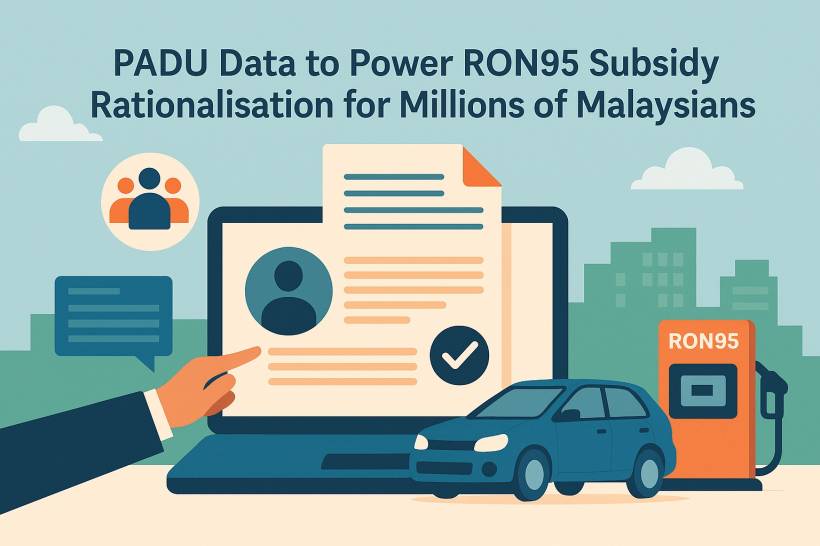If you've been wondering whether Malaysia's PADU socio-economic database was just another government project that would fade into obscurity, the answer is a clear no. The Pangkalan Data Utama (PADU), initiated under former economy minister Datuk Seri Rafizi Ramli, is about to play a major role in shaping how the RON95 fuel subsidy is distributed.
Finance Minister II Datuk Seri Amir Hamzah Azizan, who is also the acting economy minister following Rafizi's resignation in May, confirmed that the Ministry of Finance (MoF) is currently fine-tuning the mechanism for targeted subsidies. This mechanism will tap into PADU's massive trove of information — an impressive 30.4 million individual profiles — to decide who qualifies for the RON95 subsidy.
What's Inside the PADU Database?
PADU isn't just a list of names and addresses. It's a comprehensive socio-economic profile for each Malaysian, containing:
By consolidating all this information, PADU allows the government to make better-informed decisions when distributing subsidies and aid.
Ensuring Only the Right People Benefit
One of the key goals behind using PADU for RON95 subsidy allocation is precision. According to Amir Hamzah, the database will help verify and confirm applicants' information, ensuring subsidies go only to those who genuinely qualify. This reduces the risk of errors and prevents subsidies from going to unintended recipients.
Beyond subsidies, this data can also help the government design targeted intervention programmes for specific communities, particularly those in vulnerable or underserved categories.
Collaboration Across Agencies
PADU isn't working in isolation. So far, 204 agencies have shared and integrated their data with the system, though access remains strictly limited to government use. As of now, nine applications from different agencies have been approved to make use of PADU data.
This collaboration ensures that the database remains up-to-date, relevant, and rich in detail, strengthening its role as a central reference point for policymaking.
A Push for More Registrations
When PADU was launched, there were doubts about whether the middle-income group (M40) would even bother signing up. However, Rafizi revealed in November 2024 that about 55% of households registered during the first phase, mostly from lower-income groups.
Now, with the government making it clear that only the top 15% income bracket (T15) and above will be ineligible for subsidies, more households are expected to register. Rafizi also stressed that if people fail to register and verify their information on PADU, they may miss out entirely on RON95 subsidies once the new mechanism kicks in.
Final Thoughts
PADU is finally moving from concept to real-world impact, and the RON95 subsidy rationalisation is the first big test of its capabilities. By combining data accuracy, cross-agency collaboration, and targeted delivery, the government hopes to ensure that subsidies are distributed fairly, efficiently, and to those who truly need them.
For Malaysians, one thing is clear — if you're not in PADU, you might soon be out of the subsidy game.






Comments